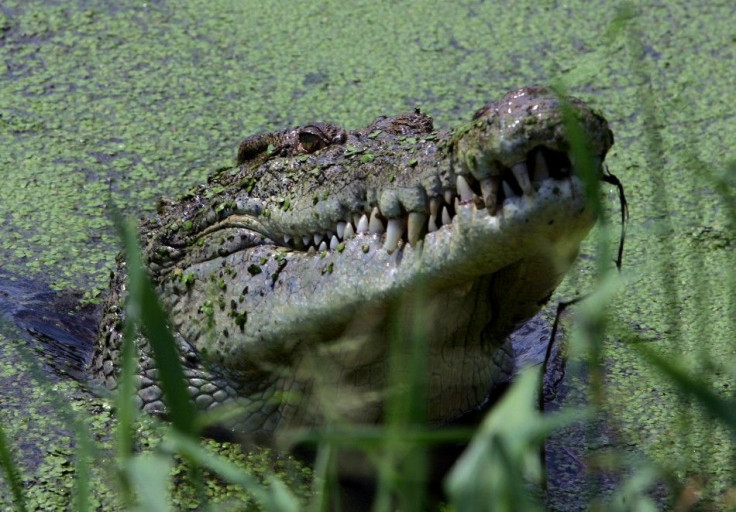Florida Scientists Discover Giant, Ancient Crocodile in Colombia

A team of Florida scientists has discovered an ancient, giant crocodile in Colombia.
The crocodile was found in the Cerrejón coal mine, the same place where the ancient snake Titanoboa was discovered. The crocodile was 20 feet long and had a long, narrow snout filled with pointed teeth.
Researchers pointed out that Titanoboa could grow to more than 40 feet long and, like the crocodile, ate fish, which meant the two could have competed for food.
The younger individuals were definitely not safe from Titanoboa, but the biggest of these species would have been a bit much for the 42-foot snake to handle, lead author Alex Hastings said in a statement.
Hastings is a graduate student in the U.F. Department of Geological Sciences. His advisor, Jonathan Bloch, and Smithsonian Tropical Research Institute paleobotanist Carlos Jaramillo led excavations.
The crocodile, named Acherontisuchus guajiraensis, is a dyrosaurid, a species that originated in Africa approximately 75 million years ago and eventually swam to South America, scientists said.
Scientists believe this discovery will help to better understand how certain animals survived mass extinctions.
Also, this species of crocodile lived in much warmer temperatures than today's, which may help in understanding how species will adapt to rising global temperatures.
The same thing that snuffed out the dinosaurs killed off most of the crocodiles alive at the time, Hastings said. The dyrosaurids are one of the few groups to survive the extinction and later become more successful.
Researchers described their findings in the journal Paleontology.
© Copyright IBTimes 2024. All rights reserved.





















